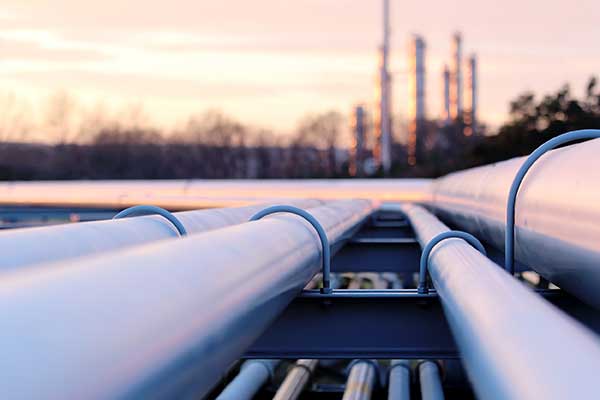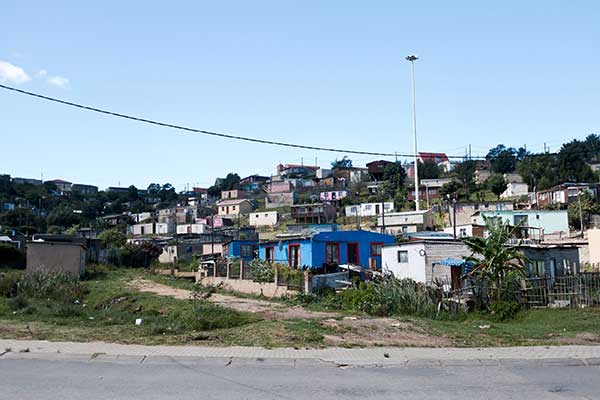In this week’s review of the top energy news, Canadian power projects destined for the U.S. are a major source of controversy. President Joe Biden faces a class-action lawsuit over his decision to stop the Keystone oil pipeline from Canada, whereas in Maine, a judge upholds a challenge to part of a project meant to pave the way for the introduction of Canadian hydropower.
21 States Sue Biden Over Decision to Stop Keystone Pipeline
The attorneys general of Texas and Montana are leading a coalition of attorneys general from 21 states who are suing President Joe Biden over his decision to revoke the permit for the Keystone XL pipeline. They claim he exceeded his authority under the constitution.
The President issued the order stopping the project immediately after he took office in January 2021, citing climate change concerns and the need to focus on the energy transition. The pipeline is a project that would permit Canadian company TC Energy Corporation to bring more than 800,000 barrels of oil from Canada to the Gulf Coast of Texas.
Former President Donald Trump had approved permits for the construction of the pipeline in 2019, reversing an earlier decision by former President Barack Obama to refuse permission.
Work began on the pipeline in 2020, and TC Energy said stopping the pipeline has led to numerous job losses.
Many of the GOP-led states that are party to the lawsuit are not in the pathway of the pipeline, but they joined the class action because they said stopping the pipeline would have an adverse ripple effect on their economies.
The other states to join the lawsuit filed in the U.S. District Court of Southern Texas are Alabama, Arizona, Arkansas, Georgia, Indiana, Kansas, Kentucky, Louisiana, Mississippi, Missouri, Nebraska, North Dakota, Ohio, Oklahoma, South Carolina, South Dakota, Utah, West Virginia, and Wyoming.
Because the pipeline crosses the national border with Canada, a presidential permit is required for it to go ahead.
Canadian Hydropower for Maine Meets Resistance
A recent ruling by a judge upholding a civil action suit against the Maine Bureau of Parks and Lands has given fresh impetus to opposers of a proposed Canadian hydropower project.
The lawsuit challenged the decision by the bureau to lease a section of land to the New England Clean Energy Connect, a project run by the Central Maine Power Company. The power company wants the land as part of the route for laying a power line to bring hydropower from the Canadian company Hydro-Quebec to New England.
However, the judge ruled that the Maine bureau was required to make a formal assessment of the potential impact of the power line on the area before it could proceed to lease it. If the assessment shows potential significant impacts, then the bureau would have to obtain two-thirds majority approval from the legislature before they could go ahead with the lease.
The $1 billion project was given the go-ahead by the Trump administration, but opponents say it will have a negative impact on swaths of previously untouched forest in the North Maine Woods and hurt recreational tourism.
Central Maine Power says the project will give the region greater access to green energy and reduce the region’s carbon emissions, even as the state legislature passed a bill the same week embracing ambitious climate change goals in pursuit of net-zero emissions by 2050.
U.N. Airline Emissions Reduction Scheme Deficient
A voluntary U.N. airline emissions reduction scheme that relies on airlines buying carbon offsets priced at $2 a ton will likely not help the EU in reaching its emission reduction goals, a study found.
The study was commissioned by the EU, which is preparing to implement the CORSIA scheme designed by the U.N. for the aviation industry. The scheme allows airlines to compensate for their emissions by buying offset credits from renewable energy or forestry projects.
Aviation currently accounts for roughly 2% of global carbon emissions.
The EU aims to be net zero by 2050 and currently requires airlines operating within its space to buy carbon credits on the EU carbon market, where the price has risen to more than $48 per ton. The study warned that the CORSIA scheme would negatively affect the EU’s climate targets.
Carbon credits are limited in number and regulated by governments and international organizations. They permit businesses to buy the right to emit a fixed amount of greenhouse gases at a high price. Businesses that do not use up all of their credits can then sell them to other companies in a regulated market.
On the other hand, carbon offsets are acquired through investing in green projects, such as reforestation and solar farms, and are used by businesses to compensate for their organization’s emissions.
Despite criticism that the CORSIA’s carbon offset schemes were weak and “questionable,” the European Commission says it is preparing the framework for implementation.
Saudi Arabia’s Aramco Prioritizes Business With China
Saudi Aramco has said keeping China supplied with oil will be its main focus in the years ahead, even as it collaborates with Chinese research organizations on the development of cleaner fuels and technologies.
Saudi Aramco’s CEO Amin Nasser said the company appreciates the need for an energy transition, but the need for fossil fuels will remain until suitable alternatives can be sufficiently developed.
Saudi Arabia remains China’s top oil supplier, selling them as much as 1.86 million barrels of oil a day.
China has pledged to peak its carbon emissions by 2030 and be carbon neutral by 2060. It expects to peak its oil demand at 730 million tonnes by 2025.
With this in mind, China has begun work on producing more blue hydrogen, which is created by capturing and storing carbon dioxide, as well as green hydrogen. Though it is currently the world’s largest hydrogen producer, much of that production is done with fossil fuels. China also plans to install 1,000 hydrogen refueling stations by 2025 for use in transport.
Aramco sees potential opportunities for collaboration with China on blue hydrogen and ammonia production, as well as carbon capture and utilization technologies.
U.K. County Council Gets 24 Million Pounds for Energy Efficiency
Hertfordshire County Council in the U.K. announced it had received additional funding from the U.K. government’s Public Sector Decarbonisation Scheme, as it seeks to do its part to fight climate change.
After receiving an initial funding of 15 million pounds toward implementation of its Sustainable Hertfordshire Strategy, the county council was given nearly 9 million pounds more in a recent round of funding by the decarbonization scheme.
Under that scheme, the U.K. government has allocated more than 900 million pounds to 429 projects that will reduce carbon emissions in the public sector, including schools, hospitals, police stations, and leisure centers.
The Hertfordshire council plans on spending the money on installing solar panels on council-owned buildings, as well as on energy efficiency projects at 74 schools, 23 fire stations, and libraries.
South Africa Sourcing Electricity From Megaships
The South African government has accepted the bid by the Turkish company Karadeniz to supply electricity to the country’s ailing electricity grid by means of three LNG-powered megaships.
The company’s subsidiary, Karpowership, will dock ships at three ports in South Africa that will deliver energy to the state utility Eksom at a cheaper rate than the diesel the utility currently uses in times of emergency.
However, environmental groups say that over the course of its 20-year contract with South Africa, the company is likely to generate more than 60 million tons of carbon dioxide equivalent emissions.
The government announced that eight companies in total, including Karadeniz, were selected as independent power suppliers to help alleviate the constant power failures in the country.
It said the eight companies chosen include suppliers of solar and wind energy as well as battery storage. The companies will invest $3 billion into the South African economy and provide 3,800 jobs during the construction phase of the projects.
The country is also inviting bidders to submit a proposal by August to supply 2,600 megawatts of renewable energy.
Trinidad to Use Carbon Dioxide in Oil Production
The Trinidad and Tobago Ministry of Energy and Energy Industries has just announced the formation of a steering committee to guide the implementation of a carbon dioxide enhanced oil recovery project. The initiative is intended to both increase the country’s oil revenues and reduce the amount of carbon dioxide emissions in the atmosphere.
The Caribbean country will use carbon storage and carbon sequestration technologies to capture the CO2 used in the enhanced oil recovery. The project will be piloted at the state-owned oil company Heritage Petroleum Limited in Point Lisa in the south of the country.
Opinion writer: Jewel Fraser
The opinions, beliefs, and viewpoints expressed by the various authors do not necessarily reflect the opinions, beliefs, or viewpoints of Interactive Energy Group, LLC (IEG) or its parent companies or affiliates and may have been created by a third party contracted by IEG. Any content provided by the bloggers or authors are of their opinion and are not intended to malign any individual, organization, company, group, or anyone or anything.
Brought to you by energysavings.com
All images licensed from Adobe Stock.
Featured image:



